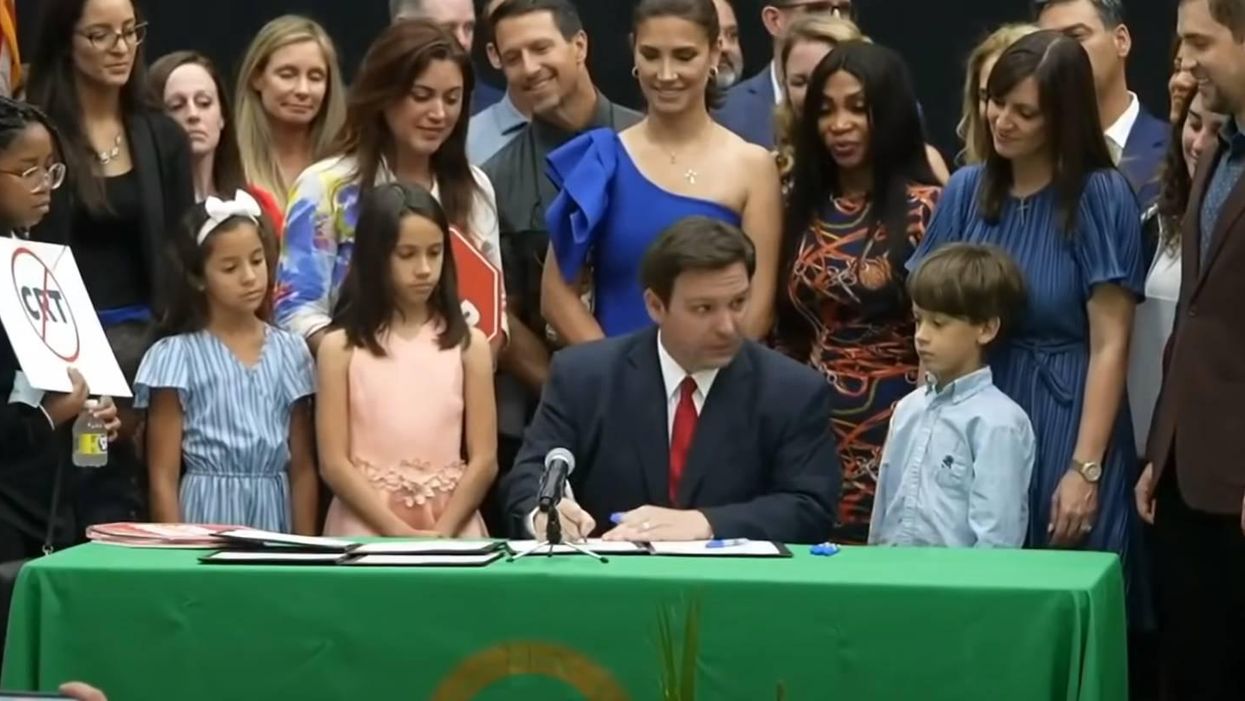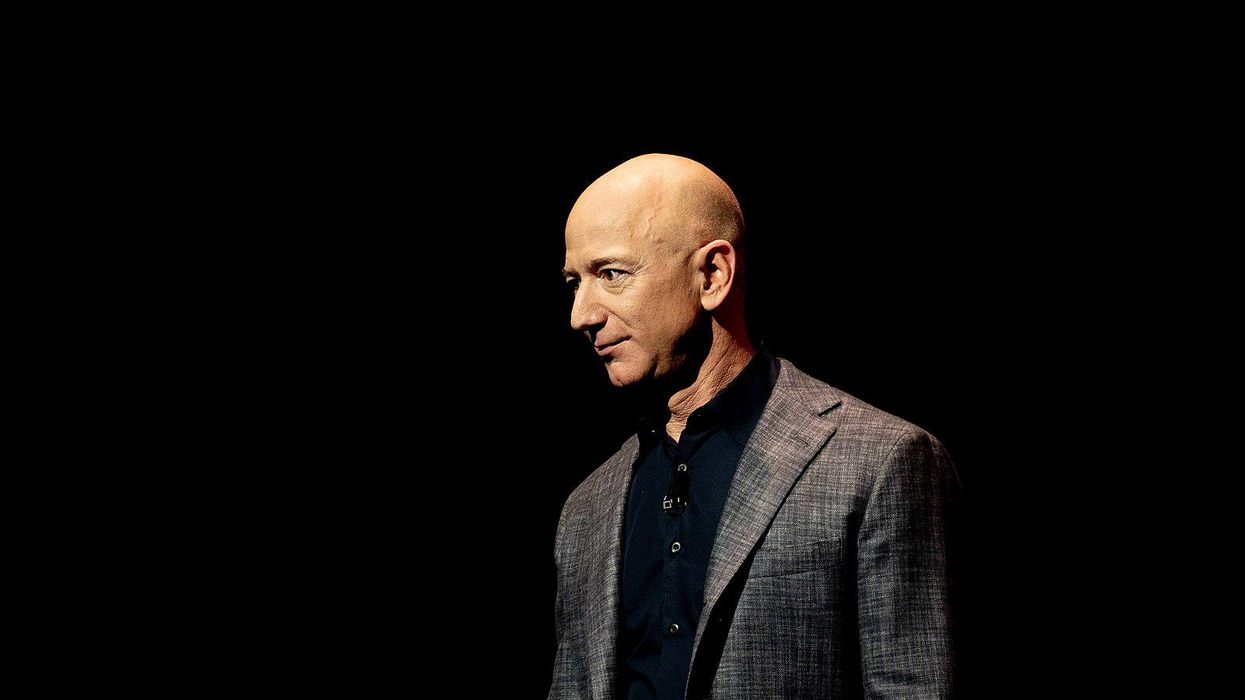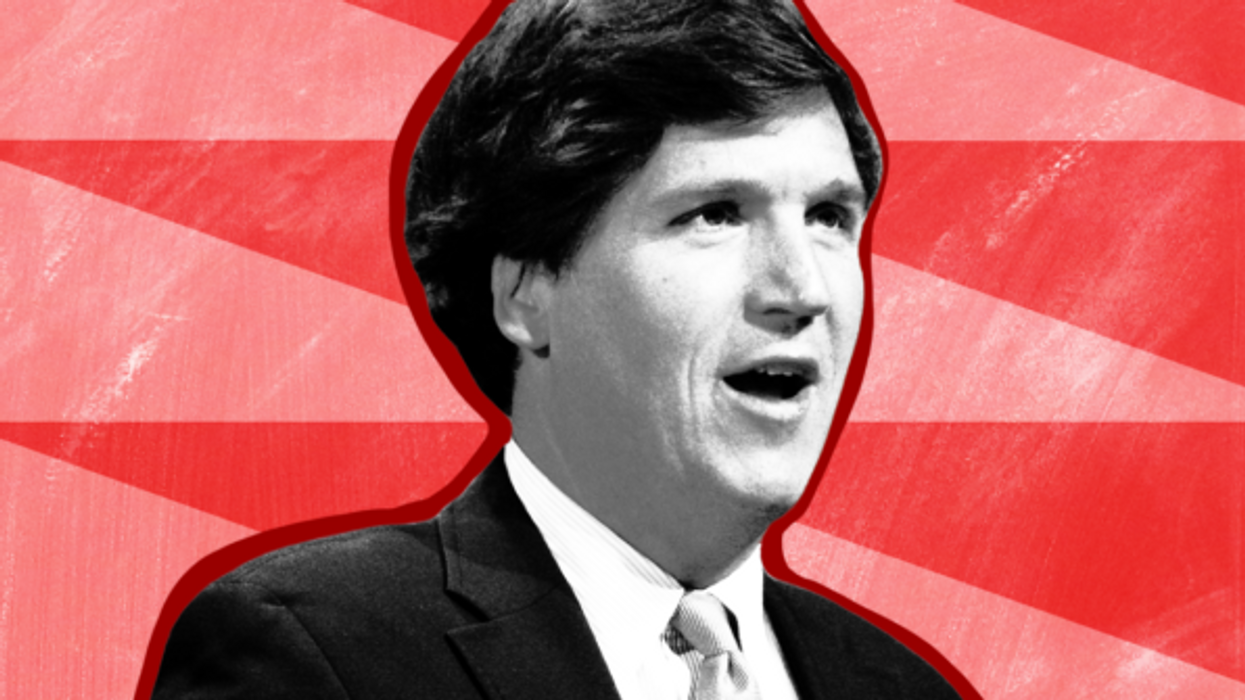‘Pro-Business’ Wingnuts Laud Vindictive Crusade Against Disney Company
Right-wing pundits and figures lauded Republicans in the state for passing a bill designed to financially punish the company for its opposition to the “Don’t Say Gay” bill
Republican lawmakers in Florida followed through with Gov. Ron DeSantis’ threat to strip Disney of its special self-governing status in the state, passing Senate Bill 4-C along party lines as part of their onslaught against the company for opposing the “Don’t Say Gay” legislation. Conservative media pundits and figures celebrated DeSantis “laying waste to Disney,” saying SB 4-C, which could potentially cost taxpayers in the state $1 billion, was the result of the company “completely hew[ing] to the demands of the woke universe.”
The measure was signed into law by DeSantis on Friday, with DeSantis saying he was “not comfortable having that type of agenda get special treatment” in Florida. It will eliminate special tax districts in the state established before 1968 — a designation limited solely to the district in which Disney World has operated since 1967. Prior to 2022, Republicans did not oppose tax incentives for Disney in Florida, with DeSantis approving more than half a billion dollars in tax breaks for the company. That changed following the company’s eventual opposition to the Republican Party’s drive to eliminate discussions of LGBTQ topics from public education.
No.\n\nDisney chose to vocally and publicly side with radical leftists who want to teach other people's kids about sexual attraction and gender-bending.\n\nTake them down, and stop apologizing for winning too much. Because the left sure as heck doesn't.https://twitter.com/charlescwcooke/status/1516829842506928137\u00a0\u2026— Brittany Hughes (@Brittany Hughes) 1650483893
Some journalists have remarked on the apparent hypocrisy of Republicans — a party historically associated with corporate interests that regularly bills itself as pro-free speech — attacking a company for taking a stance on civil liberties. Appearing on CNN, Business Insider’s Linette Lopez remarked that this “punitive punishment for Disney not agreeing with Ron Desantis” showed the “GOP is changing its tune” on the issues once central to its identity.
In reacting to SB 4-C passing, right-wing media and figures placed blame for this latest escalation on Disney, a company that is listening to its employees by standing up for LGBTQ youth, rather than on the party bent on escalating its feud with one of the state’s largest employers. The same commentators continued their anti-trans and homphobic campaign of labeling supporters of LGBTQ inclusion in education and the media as “groomers,” falsely claiming Disney and its supporters thought “kids should be learning about sex changes and gender fluidity at the age of 8.” The vague wording of Florida’s “Don’t Say Gay” law means that it could be applied to teachers and students well beyond age 8.
- On Fox News’ Jessie Watters Primetime, guest host Brian Kilmeade claimed Disney had a “problem” with DeSantis because he “doesn't think kids should be learning about sex changes and gender fluidity at the age of 8.” Watters said DeSantis was “not backing down” and Florida was “punching back even harder” by stripping Disney of its special status, calling it a “stunning blow to the company.”
- Later in the show, right-wing radio host Clay Travis said Disney had “just completely hew[ed] to the demands of the woke universe” by opposing the “Don’t Say Gay” bill, adding that “there's no reason for them to be trained in sexual orientation or taught it.” Travis said DeSantis was “going to throw a punch back at you, Disney, and you're going to have to take it.”
- In an op-ed for Townhall titled “Laying Waste to Disney,” senior columnist Kurt Schlichter said Disney was “follow[ing] the urges and urgings of a bunch of blue-haired weenies with weird piercings who want to groom your children to make them gender non-binary, otherkin weirdos,” adding, “Ron [DeSantis] is not having it. Ron does not play that. Ron exercised his own kind of power.”
- Matt Walsh opened an episode of his Daily Wire podcast by saying, “Now that the anti-groomer bill has been passed in Florida despite the pro-grooming efforts of Disney, Republicans in the state have moved on to punishing and exacting revenge on Disney. Some milquetoast conservatives are uncomfortable with this, but I think it's great.” Also during the episode, which is titled “It’s Time To Take Revenge On Disney,” Walsh claimed the company was “fully in favor of and committed to the sexual indoctrination of children” and had “proved itself to be an enemy of Florida parents and parents across the country and around the world.”
- Right-wing radio host Joe Pags tweeted, “Maybe Disney should stop pushing sex, sexual orientation, sexual preference and gender ID. Kinda what got them to where they are to begin with right? Act like Walt is still alive.”
- Brittany Hughes of the Media Research Center, a right-wing organization opposed to LGBTQ representation in the media, tweeted that “Disney chose to vocally and publicly side with radical leftists who want to teach other people's kids about sexual attraction and gender-bending,” adding, “Take them down.”
No.\n\nDisney chose to vocally and publicly side with radical leftists who want to teach other people's kids about sexual attraction and gender-bending.\n\nTake them down, and stop apologizing for winning too much. Because the left sure as heck doesn't.https://twitter.com/charlescwcooke/status/1516829842506928137\u00a0\u2026— Brittany Hughes (@Brittany Hughes) 1650483893
- On the April 21 edition of Fox News’ Fox & Friends, co-host Steve Doocy said Disney had “ruined the greatest deal, the sweetest deal, ever” as part of the “clash between Gov. DeSantis and Disney over gender and sex education.” Doocy later chastised Disney leadership for opposing the “Don’t Say Gay” bill, saying, “If you are a stockholder of Walt Disney, you got to be wondering why have they gone so woke because this could impact my savings and stock holdings in your company.”
- Later in the episode, Fox & Friends brought on Turning Point USA’s Rob Smith, who said, “Gov. DeSantis is really putting Disney, and by extension a lot of these other woke corporations, on notice that they really should not be involved in these sort of culture war issues that the left always wants to drag them into.” Smith claimed Disney’s vocal opposition to the “Don’t Say Gay” bill was “really, really damaging Disney's brand” and claimed that “a lot of corporations are going to be looking at this and saying, when the next thing comes around, I'm not getting involved.”
- Joseph Backholm, a senior fellow for the extremist anti-LGBTQ group Family Research Council, suggested that the bill was passed “all because they aren’t allowed to talk to six year-olds about sex.”
- Federalist Senior Editor John Daniel Davidson wrote an article titled “Gov. DeSantis Is Right To Attack Disney. Republicans Everywhere Should Follow His Lead” in which he wrote Disney “should be prepared to pay a heavy cost” for “[coming] out publicly as a very real threat to Florida parents who don’t want their second-graders instructed about sexual orientation and gender identity.” Later Davidson applauded the state’s GOP lawmakers, adding, “Finally, DeSantis and Florida Republicans have taken the enemy at their word, and responded in kind.”
- On the April 21 edition of Fox News’ America’s Newsroom, Fox News contributor Guy Benson claimed that “the left” had “bull[ied] institutions and corporations into following [its] will on various things” and asked if SB 4-C was “a way for Republicans in Florida to remind Disney, ‘Actually, hey, we have clout, too. And if you’re going to just, you know, thumb your nose at us, things might happen that you might not like.”
Printed with permission from Media Matters.




